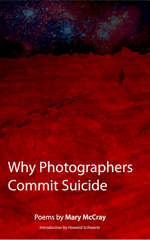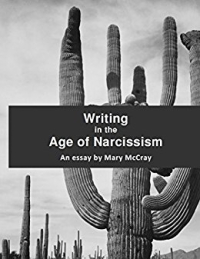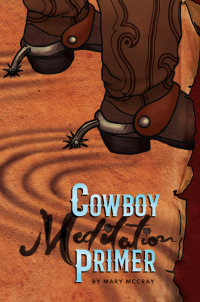I’ve always been attracted to cerebral poets, or rather a particular niche of them, the ones who explore a certain level of academic fiction and non-fiction. Specifically the David Foster Wallace level: not so genius you can’t follow them but pretty freakin’ smart and well read.
There's a line of complexity beyond which my brain starts to frizz. Conspicuous allusions also breaks my mind. Not that David Foster Wallace doesn't allude. I guess I'm just partial to modern, hip as opposed to Greek and Latin ones, Shakespeare-staling or the backwards-circular allusions to the already painfully allusive T. S. Eliot. I actually like T.S. Elliot just more his haunted, creepy allusions more than the "learned" riff-raff.
The exception is Anne Carson who definitely alludes to the classics but leaves enough in there for some of us dummies out here. I like her language. And that's what it comes down to for most of us–language that appeals to us, to our unique ears and ways of thinking. Below is my cocktail for smarty-pants poets, the ones I keep coming back to.
 In my third or fourth poetry writing workshop at the University of Missouri in St. Louis, my professor Steve Schreiner gave me my first personalized book recommendation (like ever), the book Powers of Congress (1990) by Alice Futon. This was back in the mid-1990s and I found it impenetrable back then. Twenty-five years later (and seven cities later) I got back to reading it.
In my third or fourth poetry writing workshop at the University of Missouri in St. Louis, my professor Steve Schreiner gave me my first personalized book recommendation (like ever), the book Powers of Congress (1990) by Alice Futon. This was back in the mid-1990s and I found it impenetrable back then. Twenty-five years later (and seven cities later) I got back to reading it.
What I love about Fulton is that there is hardly a dead line in any of her poems. Her poems are eclectic and range in topics from technology to courtship to soap operas. And, best of all, she’s smart about science. As Sarah Howe said in her Paris Review essay "On Relativity," both science and poetry share the need to construct metaphors in order to explain our phenomena and both disciplines are "conscious of how these metaphors can mislead."
I also appreciate the level to which Fulton takes her experiments. She plays with the lyric but only parts of it or one aspect of it. Because of this her point is never lost in abstraction. A good example of this is “Point of Purchase,” a lyric with marginalia from different student characters participating in a writing workshop. The marginalia is funny and naively off-the-mark, workshop comments that are self-involved and prime with agendas.
Another favorite is “The Fractal Lanes” which circles around science and (of course) fractals, but also hints at bowling and writing in a subtle ars poetica. Who knew a few years later I would become interested in fractals and chaos theory myself when working on Why Photographers Commit Suicide.
"Losing heart, mind, or being
Insinuated."
 Great lines from the poem “Silencer”
Great lines from the poem “Silencer”
“To live is to be a threshold that persists.”
Or from “Losing It”
"When your brain’s become a byzantine cathedral
Flooded with the stuff of sump and dumpster.
Its frescoes—memories—confetti
into the mortal sludge."
My least favorite poems in the collection are probably the love/sex poems, which seem more convoluted and remind me, for some reason, or Erica Jong’s idea of the Zipless Fuck.
You get your money’s worth with Fulton, this book running over 100 pages.
 Much of the same praise can be given Albert Goldbarth and his books. I finally finished the 185 page set To Be Read in 500 Years (2009). Here’s another poet of good quality and quantity for dollar spent. Even more so than Fulton, Goldbarth swims in ideas of science and cosmology and current culture, marriage, fame, product placement, identity theft, history, the Internet, illness. He also references Emily Dickinson, William Carlos Williams, Walt Whitman. One example from “I’m Nobody! Who Are You? Are You Nobody, Too?”
Much of the same praise can be given Albert Goldbarth and his books. I finally finished the 185 page set To Be Read in 500 Years (2009). Here’s another poet of good quality and quantity for dollar spent. Even more so than Fulton, Goldbarth swims in ideas of science and cosmology and current culture, marriage, fame, product placement, identity theft, history, the Internet, illness. He also references Emily Dickinson, William Carlos Williams, Walt Whitman. One example from “I’m Nobody! Who Are You? Are You Nobody, Too?”
"The three, the wind: a fricative relationship.
A sound so shaped that some nights
it’s less music and more language.
Words. A few words, anyway. There
have been nights, admit it, when
you’ve thought you heard your name in the air,
your name being sung, a recognition
that you’re part of the star-resplendent sky
and the must vapors of earth—they
know who you are, you owe them for this special focus.
Listen: your name; a part
of the wind’s acoustical graffiti."
 Like Fulton, Goldbarth also experiments but sets his limit. He experiments with stanza arrangements like Fulton and cross-outs and titles. He works out language theory issues but by talking through them. He’s always inclusive.
Like Fulton, Goldbarth also experiments but sets his limit. He experiments with stanza arrangements like Fulton and cross-outs and titles. He works out language theory issues but by talking through them. He’s always inclusive.
His micro and long poems consistently make me pause and say, Wow! The poem “Imperfect Knowledge” is an amazing thing. Channeling modernism's crisis of knowing, it references William Carlos Williams, Walt Whitman and Bette Midler. Part of the lyric in the shape of a face while discussing prosopagnosia.
“…a museum, of sorts, for errors” is also a great multi-sectioned poem about bad ideas and blunders. “The Blank” is a great mid-sized poem about literary controversy, among other things. It’s hard to say what Goldbarth poems are about when they ramble luxuriously.
Here's an example of a tiny ars poetica called “Birds,”
"It’s hunger and territory
although we choose to call it song."
He’s also very funny. From “The Voices,”
“My mother worked in condemning.” Well whose
doesn’t. “No, I mean that was really her job,
condemning vacant buildings for the county.”
 Jorie Graham's book The Dream of the Unified Field (1995) is a collection I’ve also had since the late 1990s and have finally finished, (it’s signed no less; I bought it at a Jorie Graham reading). Graham, although a more "difficult poet" is not dissimilar to Fulton and Goldbarth. She tackles the elusive way the universe works, she talks of hooks and currents and ghosts. But at times she can be cryptically Dickinsonian and she can also invoke biblical and classical allusions. She uses quick cutting transitions, and more often challenges knowledge instabilities.
Jorie Graham's book The Dream of the Unified Field (1995) is a collection I’ve also had since the late 1990s and have finally finished, (it’s signed no less; I bought it at a Jorie Graham reading). Graham, although a more "difficult poet" is not dissimilar to Fulton and Goldbarth. She tackles the elusive way the universe works, she talks of hooks and currents and ghosts. But at times she can be cryptically Dickinsonian and she can also invoke biblical and classical allusions. She uses quick cutting transitions, and more often challenges knowledge instabilities.
She goes a little farther in her willingness to let gaps come between her and her readers (from “One in the Hand” – “And see how beautiful/an alphabet becomes/when randomness sets in.”) She goes farther into the project of abstraction (from “Mind” “the unrelenting, syncopated/mind”). And she’s also awfully more serious (from “Tennessee June” “Nothing is heavier than its spirit”).
But she’s abstract in the right recipe with the naturally particular.
From “The Visible World”
I dig my hands into the absolute. The surface
 Breaks
Breaks
into shingled, grassed clustered; lifts.
If I press, pick-in with fingers, pluck
I can unfold the loam. It is tender. It is a tender
Maneuver, hands making and unmaking promises.
Diggers, forgetters…A series of successive single instances…
Frames of reference moving…
The speed of light, down here, upthrown, in my hands:
Bacterial, milky roots, pilgrimages of spores, deranged
and rippling
mosses. What heat is this in me
that would thaw time, making bits of instance
overlap
shovel by shovelful—my present a wind blowing through
this culture
slogged and clutched-firm with decisions, overridings,
opportunities
taken?



























